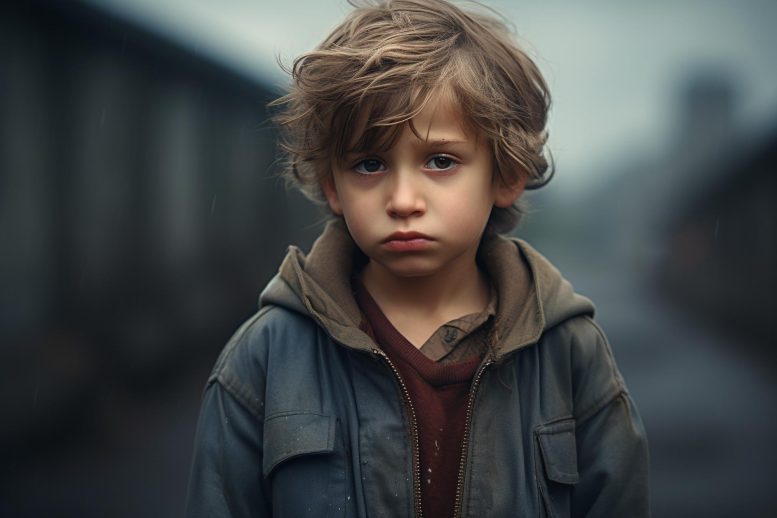
New research shows that the memory and perception of childhood maltreatment have a greater influence on future mental health than the actual experiences. Those who remembered abuse or neglect had more episodes of depression or anxiety than those who didn’t remember, even with official maltreatment records. This highlights the importance of memory perception in identifying potential mental health issues and providing early interventions.
A study published in JAMA Psychiatry has discovered that the way individuals remember and process childhood abuse and/or neglect holds more weight on their mental health in later life than the experiences themselves.
New research from the Institute of Psychiatry, Psychology & Neuroscience (IoPPN) at King’s College London and City University New York, published on July 5 in JAMA Psychiatry, has found that the way childhood abuse and/or neglect is remembered and processed has a greater impact on later mental health than the experience itself. The authors suggest that, even in the absence of documented evidence, clinicians can use patients’ self-reported experiences of abuse and neglect to identify those at risk of developing mental health difficulties and provide early interventions.
Researchers conducted a large longitudinal study following 1,196 participants to age 40 years to investigate how experiences of childhood abuse and/or neglect (maltreatment) impact the development of emotional disorders in adulthood.
The study found that young adults who retrospectively self-reported experiences of childhood maltreatment before age 12 had a greater number of depressive or anxiety episodes over the subsequent decade than those who did not remember maltreatment, even if they had an official court record.
In contrast, participants who had an official record of childhood maltreatment, but no retrospective recall of the experience, had a similar number of emotional disorder episodes in adulthood as those with no experience of maltreatment.
Andrea Danese, Professor of Child & Adolescent Psychiatry at King’s IoPPN and joint author of the study, said: “Our study reveals that how a person perceives and remembers experiences of childhood abuse or neglect has greater implications on future emotional disorders than the experience itself. The findings show that, even in the absence of documented evidence of childhood maltreatment, clinicians can use information provided by their clients to identify those at greater risk for subsequent mental health difficulties. The findings also suggest that early interventions that help cope with memories of abuse and/or neglect may prevent emotional problems later on.”
Participants were interviewed about their self-reported retrospective experiences of childhood maltreatment and their current and past mental health. They were then re-interviewed to measure the course of depression and anxiety symptoms.
Further analyses revealed that the association between self-reported experiences of childhood maltreatment and a greater number of subsequent anxiety and depression episodes was partly explained by participants’ current and past mental health, which was reported during their first interview. The authors explain that this could be because emotional disorders can negatively bias memories, making participants more likely to recall negative events.
Professor Danese said: “A better understanding of how memories of child maltreatment are maintained and exacerbated over time, and of how the memories affect daily functioning, could provide new insights to develop effective interventions.”
Reference: “Associations Between Objective and Subjective Experiences of Childhood Maltreatment and the Course of Emotional Disorders in Adulthood” by Andrea Danese, MD, PhD and Cathy Spatz Widom, PhD, 5 July 2023, JAMA Psychiatry.
DOI: 10.1001/jamapsychiatry.2023.2140
This work is part of the King’s Maudsley Partnership for Children and Young People, a unique collaboration between specialist clinicians from the South London and Maudsley NHS Foundation Trust and leading academics at King’s College London to find new ways to predict, prevent and treat mental health disorders in children and young people. The Partnership will be based in the new Pears Maudsley Centre which will be home to Child and Adolescent Mental Health Services (CAMHS) inpatient and outpatient services and clinical research facilities, set to open in 2024.
The research was supported by the National Institute of Mental Health, Eunice Kennedy Shriver National Institute of Child Health and Human Development, National Institute on Drug Abuse, National Institute on Alcohol Abuse and Alcoholism, National Institute on Aging, National Institute of Justice, Doris Duke Charitable Foundation, Medical Research Council and National Institute for Health and Care Research (NIHR) Biomedical Research Centre at South London and Maudsley NHS Foundation Trust and King’s College London.
Health - Latest - Google News
July 09, 2023 at 11:42PM
https://ift.tt/BWSR0Me
Haunting Echoes: Memories of Childhood Abuse and Neglect Has Greater Impact on Mental Health Than the Experience Itself - SciTechDaily
Health - Latest - Google News
https://ift.tt/Fjy16PQ
Bagikan Berita Ini














0 Response to "Haunting Echoes: Memories of Childhood Abuse and Neglect Has Greater Impact on Mental Health Than the Experience Itself - SciTechDaily"
Post a Comment